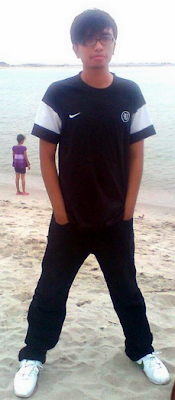We use the past continuous tense to describe a past action over a period of time
Q) "What were they doing yesterday?" A) "They were working all day.
Past Continuous : We use the past continuous to say that somebody was in the middle of doing something at a certain time. The action or situation had already started before this time but had not finished.
Compare the past continuous (I was doing) and past simple (I did): Past continuous (in the middle of an action)
- I was walking home when I met Dave. (in the middle of walking home)
- Ann was watching televison when the phone rang. Past simple (complete action)
- I walked home after the party last night.
- Ann watched televison a lot when she was ill last year
—Tom
burnt
his hand when he was cooking
the dinner.
—I
saw
you in the park yesterday. You were sitting
on the grasss and reading a book.
—While
I was working
in the garden, I hurt
my back.
Verb categorize into two..
•ACTION
•regular
•End in ‘-ed’ when the past tense and past participle forms are used
•Jog, jogged, jogged
•Walk, walked, walked
•irregular
•End in other ways when the past tense and past participle forms are used
•Read, read, read
•Buy, bought, bought
•TRANSITIVE
•Require an object in the sentence, and the object comes after the verb
•Note : the object tell us who or what the action happens to. A transitive verb must have an object because without an object, the sentence with the transitive verb is incomplete
•He plays football.
•Adam often buys present for his family.
•INTRANSITIVE
•Definition
•Does not require an object
•Note
•A sentence with an intransitive verb is complete without an object
•Example
•He jogged along the track
•The beautiful actress smiled
•NON-ACTION
•BE
•Usually comes immediately after the subject in statements.
•Am,is,are,was,were,been,being
•LINKING
•Use to link the subject of a sentence with more information about the subject.
•Can be divided into three group of expression :
•1. Feeling and thought
•2. Possession
•3. Sensory perception
•AUXILIARY
žSupport and give meaning to the main verbs.
ž examples :can,could,will,would,shall,should,may,
might,ought to,had better
žFunctions of auxiliary verbs :
vTo express ability
vTo express possibility
vTo express permission
vTo express advice
vTo express necessity
At the end of the class, We played Good Reader also good detective games. Miss zur saperate us into 6 group and wehave to guess the video that miss zur open. we have to guess the main idea and topic in the movie
















No comments:
Post a Comment